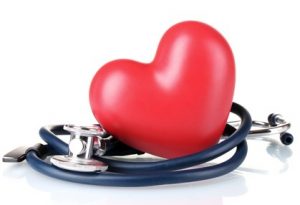Do Eggs Increase Heart Disease Risk?
Author: Dr. Stephen Chaney
 The “eggfusion” (That’s short for egg confusion) continues.
The “eggfusion” (That’s short for egg confusion) continues.
- First there were the warnings that eggs were bad for your heart because egg yolks contained cholesterol, and cholesterol was to be avoided at all costs.
- Then experts decided that dietary cholesterol wasn’t all that bad for you. It was saturated fats, obesity, and lack of exercise that raised “bad” (LDL) cholesterol levels in your bloodstream.
- That was followed by several US studies suggesting that eggs in moderation (one per day) did not affect your risk of heart disease.
- Then, about a year ago, a major study claimed that an egg a day actually lowered your risk of heart disease.
Now, the latest headlines claim that eggs increase your risk of heart disease, and you should avoid them. Are eggs bad for you? No wonder you are confused. Let me review the latest study and put it into perspective by comparing it to previous studies.
How Was The Study Done?
 This study (WW Zhong et al, JAMA, 321: djw322, 2017 combined the data from 6 clinical trials in the United States that assessed dietary intake and measured cardiovascular health outcomes. In all, these studies included 29,615 adults who were followed for an average of 17.5 years.
This study (WW Zhong et al, JAMA, 321: djw322, 2017 combined the data from 6 clinical trials in the United States that assessed dietary intake and measured cardiovascular health outcomes. In all, these studies included 29,615 adults who were followed for an average of 17.5 years.
The diet of the participants was assessed upon entry into each of the clinical trials. The primary variables derived from the dietary information were cholesterol and egg consumption. Diet was not assessed at later times in these studies.
The primary outcomes measured were heart disease and all-cause mortality. In this study heart disease was an umbrella term that included fatal and non-fatal heart attacks, stroke, heart failure, and death from other heart-related causes.
The association of cholesterol and eggs with heart disease and mortality were similar. Similarly, the effect of cholesterol and eggs on both heart disease risk and mortality were similar. Most people know how many eggs they eat but have no idea how much cholesterol they consume. Thus, for simplicity I will just focus on the association between egg consumption and heart disease risk.
Do Eggs Increase Heart Disease Risk?
 Here are the main findings from this study.
Here are the main findings from this study.
- Each additional half an egg consumed per day (which is equivalent to 3-4 eggs per week) was associated with a:
- 6% increased risk of heart disease. While that doesn’t sound like much, the increased risk was over 13% for one egg per day and almost 27% for two eggs per day.
- The increased heart disease risk associated with one half egg per day was greater for:
- Women (13% increase) than men (3% increase)
- People who already had high blood cholesterol (7% increase) than people who already had low cholesterol levels (0% increase). This suggests that the effect of eggs on heart disease risk primarily affects people who are already having trouble controlling their blood cholesterol levels – either due to genetics or due to diet & lifestyle.
Of course, the question is whether it was the eggs that increased the risk of heart disease or was it something else in the diet. This study attempted to answer that question by systematically subtracting out other variables that affect heart disease risk to see whether that correction eliminated the association between egg consumption and heart disease risk. When this was done:
- The association between egg consumption and heart disease risk disappeared after correcting for dietary cholesterol intake.
- The association between egg consumption and heart disease risk remained significant after correcting for other components of the diet, such as fats, animal protein, fiber, sodium, or overall “diet quality”. There were 3 main measures of diet quality.
- The Med diet score measures how closely the diet resembles the Mediterranean diet.
- The DASH diet score measures how closely the diet resembles the DASH diet.
- The Healthy Eating Index (HEI) measures how closely the diet aligns with the USDA Dietary Guidelines For Americans. Basically, the HEI recommends a whole food diet containing foods from all 5 food groups with a heavy emphasis on fruits, vegetables, whole grains, and legumes. It also recommends limiting saturated and trans fats, added sugars, and sodium.
In simple terms these data suggest that the effect of eggs on heart disease risk was primarily due to their cholesterol content and was not influenced by other components of the overall diet.
What Are The Strengths And Weaknesses Of The Study?
 The strengths are obvious. This was a very large study (29,615 participants) and the people enrolled in the study were followed for a long time (an average of 17.5 years). The primary variables in the study (cholesterol consumption, egg consumption, heart disease, and all-cause mortality) were accurately measured in each of the clinical trials included in the study.
The strengths are obvious. This was a very large study (29,615 participants) and the people enrolled in the study were followed for a long time (an average of 17.5 years). The primary variables in the study (cholesterol consumption, egg consumption, heart disease, and all-cause mortality) were accurately measured in each of the clinical trials included in the study.
However, there were some significant weaknesses as well:
- Cholesterol and egg consumption were only measured by a single dietary survey when people entered the study. This study assumes they did not change over the course of the study. That is very unlikely. Both cholesterol intake and egg consumption in the US population have waxed and waned over the years, in part due to variations in dietary guidelines.
- The measurements of diet quality used were based on US and European food preferences. That is significant because the only studies showing that egg consumption lowers heart disease risk were performed in China and Japan, where the diet is closer to semi-vegetarian than to US or European diets.
Are Eggs Bad For You?
This is very large, well designed study that combines the data from 6 clinical trials spanning the years 1974 to 2013.
The strongest conclusions from the study are:
- In the context of a Western diet (the US diet) egg consumption slightly increases your risk developing heart disease. The increased risk is ~6% for 3-4 eggs/week, ~13% for 1 egg per day, and ~27% for two eggs per day.
- The increased risk of heart disease appears to be almost entirely due to the cholesterol content of eggs.
The significance of this study needs to be weighed in the context of:
- Recent studies in the US and Europe showing eggs do not increase heart disease risk.
- Studies in China and Japan (where the diets can best be described as semi-vegetarian) showing that eggs decrease heart disease risk.
The significance of this study also needs to be weighed in the context of:
- Studies showing that obesity, saturated fat, and physical inactivity have bigger effects on serum cholesterol levels and heart disease risk than dietary cholesterol from foods like eggs.
What Did This Study Miss?
 If, as this study suggests, the effect of eggs on heart disease risk is due to their cholesterol content, this study (and most previous studies) missed a very important point. The effect of dietary cholesterol on blood cholesterol levels is not strongly affected by the overall composition of the diet. It is affected by the composition of the diet at the time foods containing dietary cholesterol are eaten.
If, as this study suggests, the effect of eggs on heart disease risk is due to their cholesterol content, this study (and most previous studies) missed a very important point. The effect of dietary cholesterol on blood cholesterol levels is not strongly affected by the overall composition of the diet. It is affected by the composition of the diet at the time foods containing dietary cholesterol are eaten.
- The kind of fiber found in certain fruits, vegetables, whole grains, and legumes bind to dietary cholesterol, preventing it from being absorbed as it passes through the intestine.
- Certain phytonutrients in plant foods affect how dietary cholesterol is utilized by the body.
- Our gut bacteria depend on the fiber we eat. They utilize the fiber for energy and release metabolites that affect how dietary cholesterol is utilized by the body.
- However, to blunt the effect of dietary cholesterol on blood cholesterol levels, the fiber and phytonutrient-containing foods must be consumed at the same meal.
Simply put, if your breakfast consists of eggs, sausage, biscuits, and hash browns, the cholesterol in the eggs will likely increase your blood cholesterol level, which in turn increases your risk of heart disease. This will occur even if you eat lots of fruits, vegetables, whole grains, and legumes with your other meals.
If, on the other hand, your breakfast consists of eggs and fiber-rich plant foods like oatmeal and beans, the cholesterol in the eggs will likely have a much smaller effect on your blood cholesterol levels and your heart disease risk.
The fact that previous studies have not looked at what foods were consumed along with the eggs may explain some of the variation in their conclusions about the effect of egg consumption on heart disease risk.
The Professor’s Story
 Let me share my story with you. About 25 years ago, my doctor told me that my cholesterol levels were getting high and wanted to put me on statins. I didn’t stop eating eggs for breakfast. I changed breakfast.
Let me share my story with you. About 25 years ago, my doctor told me that my cholesterol levels were getting high and wanted to put me on statins. I didn’t stop eating eggs for breakfast. I changed breakfast.
Now I soft boil my eggs or fry them in olive oil. I eat them along with oatmeal, which contains a fiber that binds cholesterol, and walnuts, which contain omega-3s and phytonutrients that lower blood cholesterol. I also include whatever fruit is in season. Finally, I take a supplement providing 2 grams of plant stanols and sterols, which block cholesterol absorption from the intestine.
My blood cholesterol levels have been low ever since. I have not had to take statins, and I get to enjoy the taste and health benefits of an egg every day. Of course, what worked for me may not work for you. The effect of dietary cholesterol on blood cholesterol levels is also affected by genetics, weight, and fitness, just to name the top three.
Are Eggs Bad For You or Good For You?
 Once you get past the cholesterol problem, eggs are a very healthy food.
Once you get past the cholesterol problem, eggs are a very healthy food.
- Studies have shown that egg protein results in better blood sugar control, better satiety (feeling of fullness), and reduced subsequent food intake in healthy and overweight individuals. In layman’s terms that means egg protein can help you achieve and maintain a healthy weight.
- Egg yolks are a good source of lutein and zeaxanthin. We think of lutein and zeaxanthin as good for eye health. They also play an important role in protecting against oxidation, inflammation, and atherosclerosis.
- Egg yolks also contain choline. We think of choline as good for brain and nerves. But, choline and other phospholipids in the yolk also raise HDL levels and enhance HDL function.
- Eggs are a good source of vitamin A, vitamin D, vitamin B12, riboflavin, selenium and iron.
- Eggs contain almost twice as much monounsaturated and polyunsaturated fats as saturated fats.
What Does This Mean For You?
 The latest study suggests that eggs may increase your risk of heart disease, and this is due to their cholesterol content.
The latest study suggests that eggs may increase your risk of heart disease, and this is due to their cholesterol content.- This study needs to be considered in the context of recent studies in the US showing that egg consumption did not increase heart disease risk and studies in China and Japan showing that egg consumption lowered heart disease risk.
- It is also important to consider that egg consumption in China and Japan is in the context of a semi-vegetarian diet. This suggests that diet plays a role in determining the effect of egg consumption on heart disease risk.
- However, if you take this study at face value, there are two things you can do to reduce your risk of heart disease:
- Reduce dietary cholesterol by avoiding eggs or using egg whites.
- Eat eggs in moderation along with fiber- and phytonutrient-rich plant foods that negate the effect of dietary cholesterol on blood cholesterol levels. I recommend oatmeal or beans, nuts or seeds, and fiber rich fruits and vegetables. These should be consumed at the same meal to minimize the effect of the cholesterol in the eggs on blood cholesterol levels.
- Eggs are a very healthy food, so I recommend the second option if possible. Get your blood cholesterol levels measured to determine which approach works best for you.
- Finally, we need to recognize that egg consumption plays a relatively minor role in determining heart disease risk. Other factors play a much larger role in influencing heart disease risk. For example:
- Smoking, obesity, inactivity, saturated and trans fats significantly increase your risk of heart disease.
- Omega-3s, antioxidants, and a primarily plant-based diet like the Mediterranean diet significantly decrease your risk of heart disease.
If we wish to reduce our risk of heart disease, this is where we should focus most of our attention. We can minimize the effect of egg consumption on heart disease risk by changing the foods we eat with the eggs. For more information on how to reduce your risk of heart disease, read my books, “Slaying The Food Myths” and “Slaying The Supplement Myths.”
The Bottom Line
- The latest study suggests that eggs increase your risk of heart disease because of their cholesterol content.
- This was a very large study. It combined the data from 6 clinical trials spanning the years 1974 to 2013. It followed 29,615 people for an average of 17.5 years. However, it has two significant weaknesses:
- It only determined cholesterol intake and egg consumption at the time people entered the clinical trials. Both cholesterol intake and egg consumption have waxed and waned considerably over the years covered by these clinical trials.
- It did not measure what foods were consumed along with the eggs. Foods consumed along with eggs have a strong influence on how much the cholesterol in the eggs influences blood cholesterol levels, which, in turn, influences the effect eggs have on heart disease risk.
- This study also needs to be considered in the context of recent studies in the US showing that egg consumption did not increase heart disease risk and studies in China and Japan showing that egg consumption lowered heart disease risk.
- However, if you take this study at face value, there are two things you can do to reduce your risk of heart disease:
- Reduce dietary cholesterol by avoiding eggs or using egg whites.
- Eat eggs in moderation along with fiber- and phytonutrient-rich plant foods that negate the effect of dietary cholesterol on blood cholesterol levels. I recommend oatmeal or beans, nuts or seeds, and fiber rich fruits and vegetables. These should be consumed at the same meal to minimize the effect of the cholesterol in the eggs on blood cholesterol levels.
- Eggs are a very healthy food, so I recommend the second option if possible. Get your blood cholesterol levels measured to determine which approach works best for you.
- Finally, we need to recognize that egg consumption plays a relatively minor role in determining heart disease risk. Other factors play a much larger role in influencing heart disease risk. For example:
- Smoking, obesity, inactivity, saturated and trans fats significantly increase your risk of heart disease.
- Omega-3s, antioxidants, and a primarily plant-based diet like the Mediterranean diet significantly decrease your risk of heart disease.
If we wish to reduce our risk of heart disease, these are the areas where we should focus most of our attention. We can minimize the effect of egg consumption on heart disease risk by changing the foods we eat with the eggs. For more information on how to reduce your risk of heart disease, read my books, “Slaying The Food Myths” and “Slaying The Supplement Myths.”
For more details and to learn how the professor does about egg consumption, read the article above.
These statements have not been evaluated by the Food and Drug Administration. This information is not intended to diagnose, treat, cure or prevent any disease.

